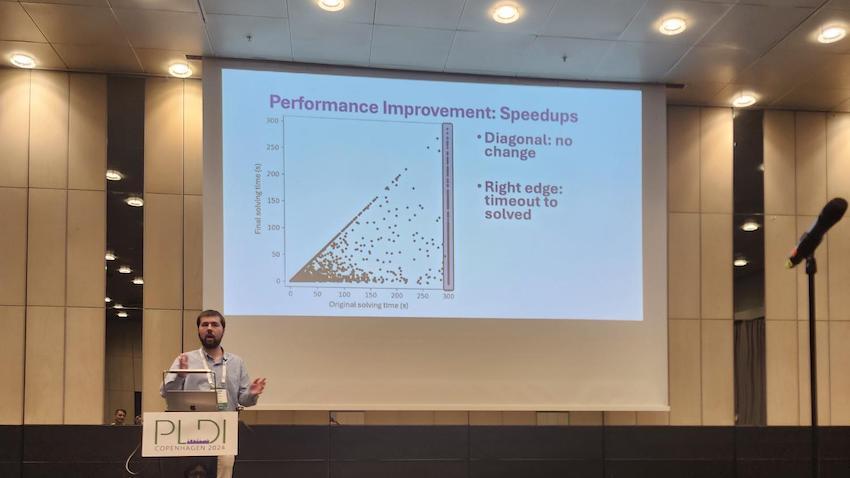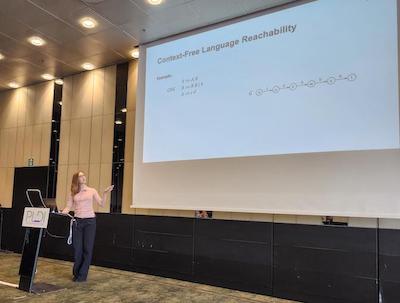
Georgia Tech Researchers Showcase Software Reliability Advances
Georgia Tech's School of Computer Science researchers recently showcased their research on advanced program analysis techniques to enhance software reliability.
The 37th Annual ACM SIGPLAN Conference on Programming Language Design and Implementation, a leading research conference for programming languages, took place June 24-28.
Assistant Professor Qirun Zhang and two Ph.D. students he advises contributed two papers to the conference focusing on program analysis techniques.
Zhang’s research focuses on programming languages and software engineering, analyzing programs to find bugs in software and compilers.
“All of these papers concern improving software reliability by finding bugs in new software and helping to reduce the number of bugs in our existing software,” Zhang said.
Ph.D. student Benjamin Mikek is the lead author of one of these papers, which looks to make SMT solvers faster and more efficient. Programmers use SMT solvers to analyze software to find possible program errors.
Companies use these software analysis techniques to test software, such as Microsoft Word, for errors before it is available to users. SMT solvers also help find security bugs in software.
“For any software you use, there is someone behind the scenes writing that software and using software analysis techniques to make sure the software is secure,” Mikek said.

Another of Zhang’s Ph.D. students, Camille Bossut, co-authored and presented a paper at the conference that focused on optimizing for a static code analysis algorithm. Bossut said that the paper showed that their approach always performs the same or better than the standard algorithm, and in practice, it resulted in significant speedup and memory usage reduction in their experiments.
Along with these papers, Zhang is researching program analysis as part of an NSF CAREER Award for his project Program Analysis with Precise Abstractions, which he earned in early 2023.


